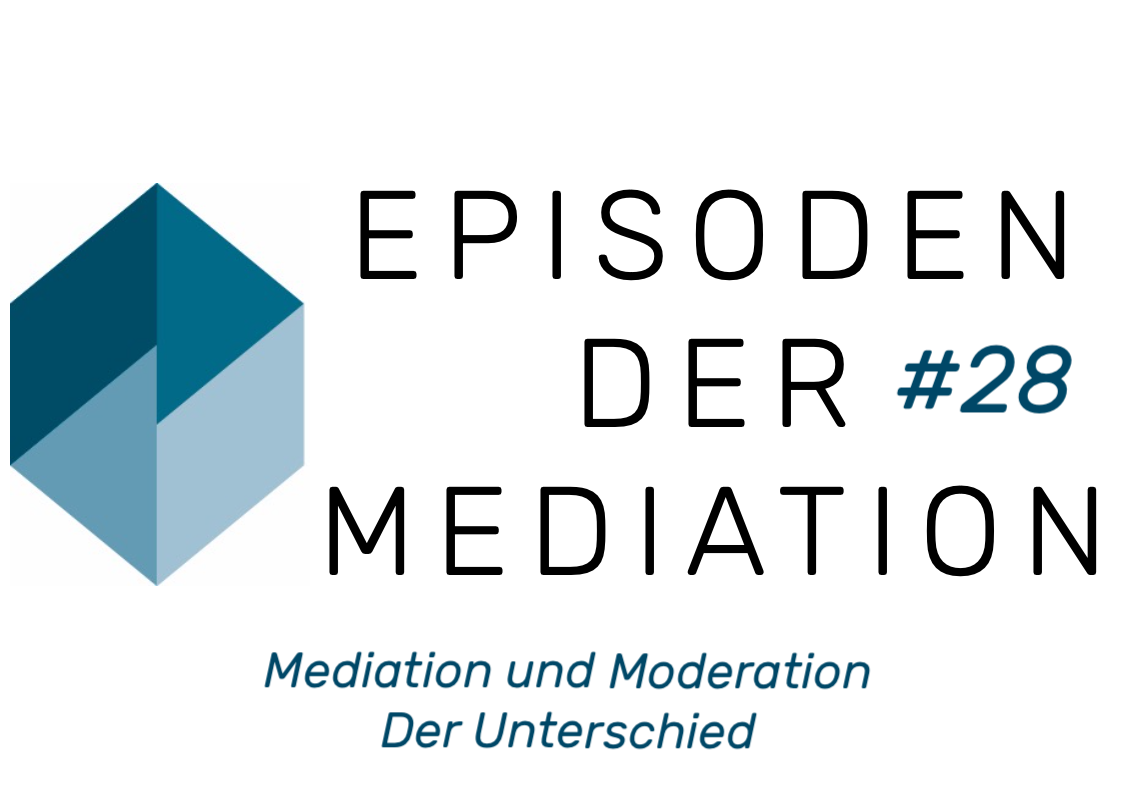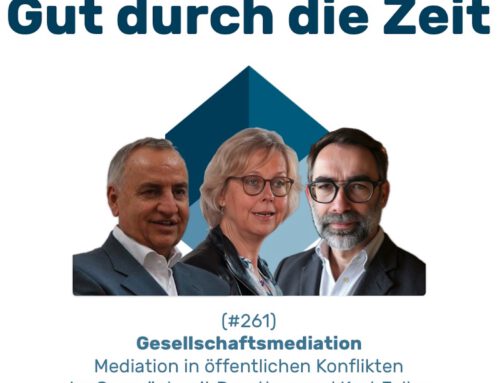#28 EdM
Mediation and facilitation – The difference.
What makes the difference between mediation and facilitation for the third person?
Episodes of mediation.
The podcast on practical questions about mediation and conflict management.
This is episode 28 – Mediation and facilitation – The difference.
Summary
In this episode, the difference between moderation and mediation is explained using a practical example: a group meeting with latent conflicts, where topic-related moderation was deliberately used instead of mediation.
The key difference lies in the motivation of those involved:
In mediation, everyone is aware that they are coming together to resolve conflicts.
Moderation is about working together on issues without conflict management being an explicit part of the assignment - even if conflicts become apparent during the process.
This initial situation has a decisive influence on the role and methodological approach of the third person. While mediators can and should actively work with conflicts, moderators must weigh up very carefully whether and how they intervene.
Conclusion: Mediation is not fundamentally more difficult than facilitation - in fact, it is often the other way round, as the clarity of the conflict assignment in mediation has a relieving effect. Moderation assignments with emerging conflicts are particularly challenging.






Leave A Comment